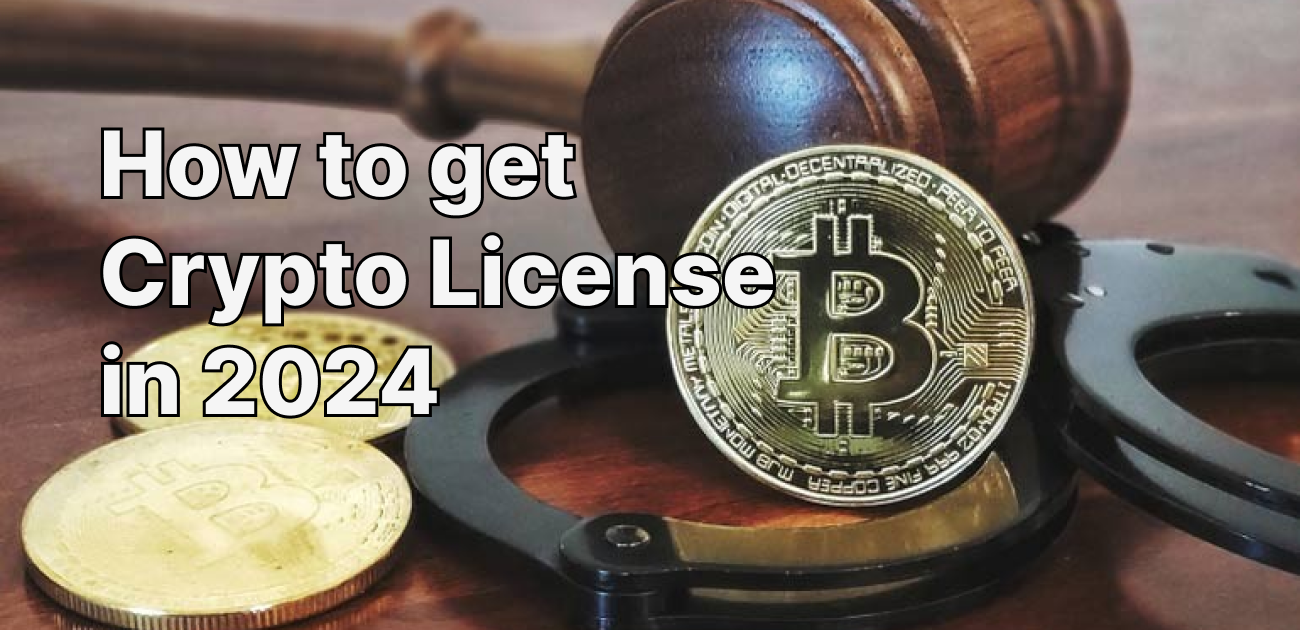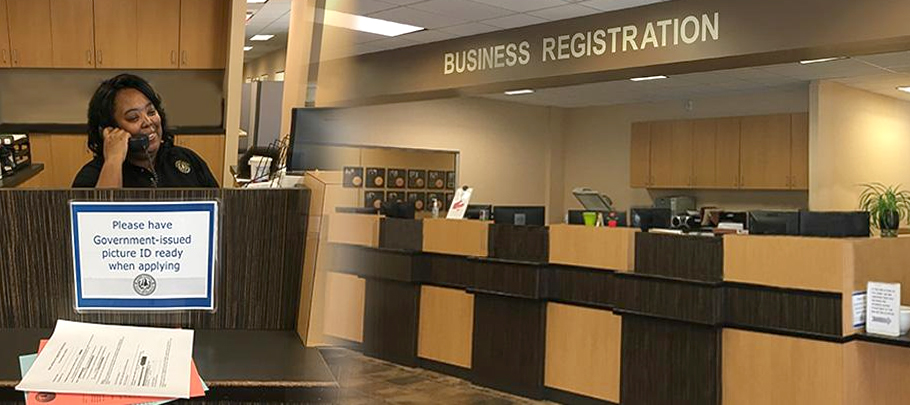Blog
How to Get a Crypto License in 2024
Jul 23, 2024
Cryptocurrencies have become an integral part of the financial landscape, and with their growing adoption, the need for regulatory compliance has also increased. Obtaining a crypto license is essential for businesses that wish to operate legally within this space. Whether you are planning to launch a crypto exchange, offer crypto custody services, or run a crypto casino, understanding the licensing process is crucial. This article will guide you through the steps to obtain various types of crypto licenses in 2024, provide insights into the costs involved, and answer some frequently asked questions.
Types of Crypto Licenses
Crypto Exchange License
A crypto exchange license allows a business to operate a platform where users can buy, sell, and trade cryptocurrencies. This license is critical for ensuring that the exchange operates under regulatory frameworks that protect users and maintain market integrity.
Crypto Trading License
A crypto trading license is similar to an exchange license but specifically targets entities engaged in trading cryptocurrencies on behalf of clients. This type of license ensures compliance with anti-money laundering (AML) and know-your-customer (KYC) regulations.
Crypto Banking License
A crypto banking license enables a financial institution to offer banking services such as deposits, loans, and payment services in cryptocurrencies. This license is typically harder to obtain due to the stringent regulatory requirements that come with banking operations.
Crypto Broker License
A crypto broker license permits an entity to act as an intermediary between buyers and sellers of cryptocurrencies. Brokers facilitate transactions and often provide advisory services, making this license essential for those looking to operate in a brokerage capacity.
Crypto Custody License
A crypto custody license allows a business to provide secure storage and management of digital assets on behalf of clients. Custodians play a crucial role in protecting assets against theft and fraud, making this license vital for trust and security.
Crypto Casino License
A crypto casino license is required for operating an online gambling platform that accepts cryptocurrencies. This license ensures that the casino adheres to fair play standards and regulatory requirements, providing a secure environment for users.

How to Obtain a Crypto License in 2024
Step 1: Determine Your Business Model
Before applying for a license, clearly define your business model and the type of services you intend to offer. Whether it’s a crypto exchange, trading platform, or custody service, understanding your business scope will help determine the specific license you need.
Step 2: Choose the Jurisdiction
The jurisdiction where you apply for a license plays a significant role in the process. Different countries have varying regulatory requirements, costs, and processing times. Some of the popular jurisdictions for obtaining crypto licenses include:
- Lithuania: Offers one of the cheapest crypto licenses and a straightforward application process. Lithuania is known for its efficient and transparent regulatory environment.
- Portugal: Provides a robust legal framework and is known for its progressive approach to crypto regulation.
- Singapore: A leading financial hub with clear and stringent regulatory requirements, suitable for businesses looking for a reputable jurisdiction.
Step 3: Prepare Documentation
Gather all necessary documents required for the application. This typically includes:
- Business plan
- Details of the company structure
- KYC and AML policies
- Information about directors and shareholders
- Proof of capital requirements
Step 4: Submit Application
Submit your application to the regulatory body in the chosen jurisdiction. This process can usually be done online. Ensure that all information provided is accurate and complete to avoid delays.
Step 5: Compliance and Audits
Once the application is submitted, the regulatory body will review it and may conduct audits or require additional information. It is crucial to comply with all regulatory requirements and be prepared for any inspections.
Step 6: Obtain License
After thorough evaluation, if the regulatory body is satisfied with your compliance and documentation, you will be granted the license. Keep in mind that maintaining the license requires ongoing compliance with regulatory standards.

Costs Involved
Crypto Exchange License Cost
The cost of a crypto exchange license varies by jurisdiction. For instance, in Lithuania, the initial cost is relatively low, while in countries like Singapore, the costs are significantly higher due to stricter regulatory requirements.
Crypto License for Sale
In some cases, existing licensed entities may sell their licenses. This can be a quicker way to enter the market but often comes at a premium price.
Cheapest Crypto License
Lithuania is known for offering the cheapest crypto licenses, with lower application fees and capital requirements compared to other jurisdictions.
Additional Considerations
VASP Crypto License
A Virtual Asset Service Provider (VASP) license is required for businesses providing services related to virtual assets. This includes exchanges, wallets, and custodians. The VASP license ensures compliance with international AML and CTF (Counter-Terrorism Financing) standards.
Trading License for Crypto
Obtaining a trading license for crypto involves similar steps as other crypto licenses but focuses specifically on trading activities. This license ensures that the trading practices are transparent and comply with regulatory standards.
Get Crypto License Online
Many jurisdictions offer the convenience of applying for a crypto license online. This streamlines the process and makes it easier for businesses to submit applications and receive updates digitally.
Found Crypto License Key
The "crypto license key" metaphorically refers to the crucial elements needed to unlock the potential of operating legally within the crypto industry. Ensuring compliance with regulatory requirements, having a robust business plan, and choosing the right jurisdiction are key components.

FAQ
Do You Need a License to Trade Cryptocurrency?
Yes, in most jurisdictions, you need a license to trade cryptocurrency, especially if you are operating a business that trades on behalf of clients or offers trading services to the public.
How to Obtain a Crypto License?
To obtain a crypto license, follow these steps:
- Determine your business model.
- Choose the jurisdiction where you want to apply.
- Prepare the necessary documentation.
- Submit the application.
- Comply with regulatory reviews and audits.
- Obtain the license upon approval.
How Much does it cost a Crypto License?
The cost of a crypto license varies widely depending on the jurisdiction. It can range from a few thousand dollars in places like Lithuania to several hundred thousand in jurisdictions with more stringent requirements like Singapore.
How Do I Become Crypto Certified?
To become crypto certified, consider obtaining certifications such as Certified Cryptocurrency Expert (CCE) or Certified Blockchain Professional (CBP). These certifications provide in-depth knowledge and recognition in the crypto industry.
What is the Easiest Country to Get a Crypto License?
Saint Vincent and the Grenadines is often considered the easiest country to get a crypto license due to its straightforward application process, lower costs, and supportive regulatory environment. St.Lucia and El Salvador are also known for their crypto-friendly regulations.
By understanding the types of crypto licenses available, the process to obtain them, and the costs involved, you can better navigate the regulatory landscape and successfully operate within the cryptocurrency industry in 2024.
Obtaining a crypto license involves many nuances and invisible obstacles. To navigate this process easily and cost-effectively, contact Offshorelicense lawyers for advice.


